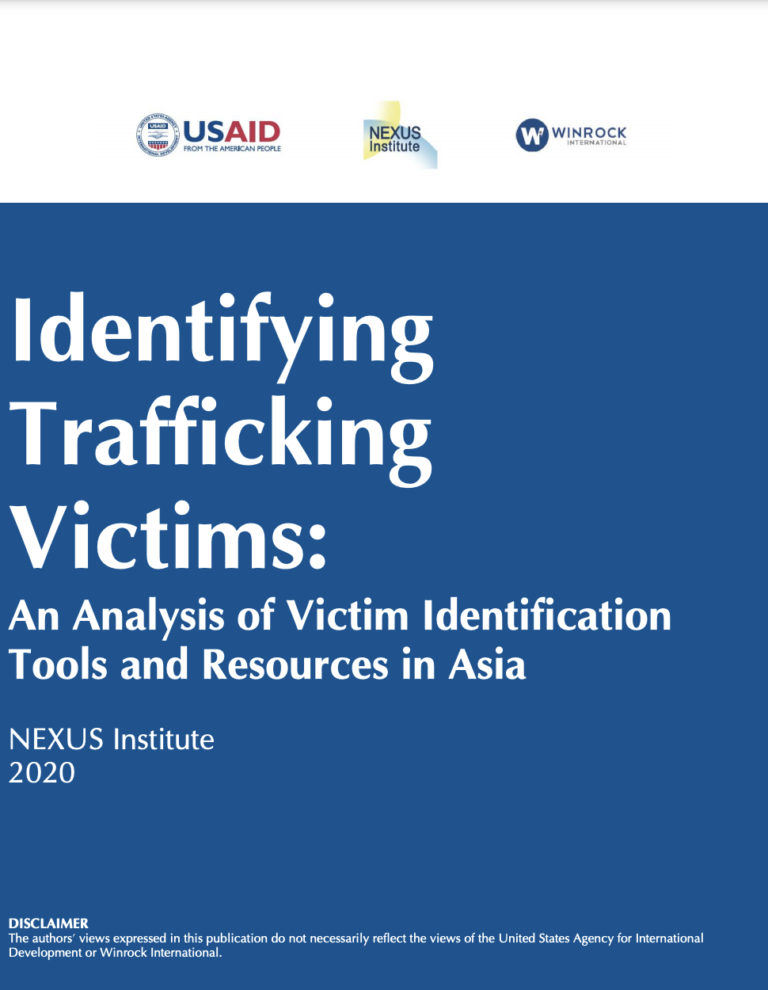This review examines what victim identification tools and resources are publicly available, primarily in English, to support the identification and referral of trafficking victims, with a focus on countries in Asia. It is intended for policymakers and practitioners who are responsible for developing, modifying, and using identification tools and resources, as well as non-state actors who support governments to fulfill their obligations to identify, refer, and assist victims of trafficking.
The review concludes with actionable recommendations to fill gaps in publicly available identification materials and to enhance victim identification materials to be developed and implemented in Asia. This review is primarily intended for policymakers and practitioners who are responsible for developing, modifying, and using identification tools and resources, as well as non-state actors who support governments to fulfill these obligations.

